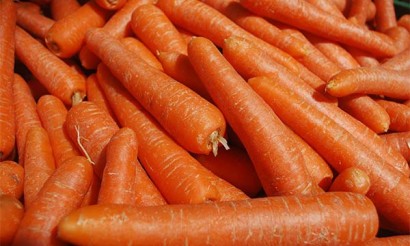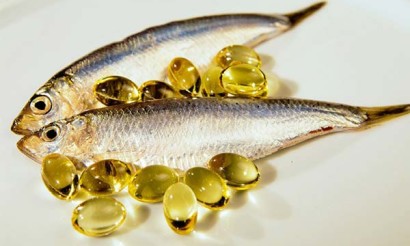How food affects a person's mood
Both physically and emotionally, food gives us pleasure. The food we eat nourishes our bodies, but it also affects our minds. Certain foods create warmth and security within us - I suggest thinking about food for comfort and food for the soul. You've probably experienced mood swings. What you eat affects how you feel. And how you feel affects what you eat. When we are stressed, we tend to overeat or undereat, which is not healthy. Food can be an escape; we eat because it makes us feel better. Some people don't want to eat at all because of stress; they are too distracted or physically unwell. The vacation season is pretty hectic for us. Making conscious choices about what we eat during this time can help us be less stressed. So, how exactly do certain foods show their effect on our state of mind?

The power of association
We form an emotional attachment to certain foods. This is because we associate them with things that have happened to us before. Food that was a big part of our childhood can bring back memories of that time. The aroma of stew makes us imagine coming home to our mother's kitchen!
This phenomenon is especially evident during the holidays. The traditional Christmas dinner reminds us of the warmth and excitement (of every other experience) we felt at this time as children.
Serotonin and calming carbs
The foods you eat can change your brain chemistry. This affects how you feel, your mental clarity, and how attentive you are. For example, certain elements in food are precursors of neurotransmitters, which are chemical mediators that transmit information between your brain cells. The content of the precursor available from food affects the amount of neurotransmitter available to your brain cells.
When it comes to mood, one important neurotransmitter is serotonin. It affects how you feel. When serotonin levels are low, you are more likely to experience tension, anger or depression.
According to Judith Wurtman, author of The Serotonin Power Diet, "Nature has given us a simple way to use the power of our brain to control our appetite and mood. We don't need drugs, supplements, herbs or pills. Simply by consuming the great variety of carbohydrates that exist on this earth, we can lose weight, feel better about ourselves, and perhaps make everyone more peaceful."
Consuming carbohydrates causes insulin to be released into the bloodstream. Insulin takes all amino acids except tryptophan out of the bloodstream. In the brain, tryptophan is converted to serotonin. Some healthy dietary choices for serotonin release include whole-grain breads, cereals and pasta.
Protein makes you more alert
Protein breaks down into its amino acid components during digestion. One of these amino acids is tyrosine, which increases the production of the neurotransmitters norepinephrine, dopamine and adrenaline. These neurotransmitters give us vigor and energy. Healthy choices include fish, poultry, lean meat and eggs.
Drinking coffee?
Despite its bad reputation, a small dose of caffeine acts as an antidepressant. But don't overdo it. Experts recommend limiting the dose to one to two cups of coffee a day!
Folic acid, selenium and fatty acids
Eat spinach and drink orange juiceto avoid depression. Studies have shown that people who are depressed have lower levels of folic acid. Eating foods with high levels of folic acid can help prevent or relieve depression.
Nuts, tuna, sunflower seeds and whole-grain cereals are good sources of selenium. Studies have shown that people with low selenium levels are more anxious. Increasing the amount of selenium helps normalize the state of mind.
Eat oily fish such as salmon, mackerel, and herring, as well as eggs. The fatty acids found in them are important for healthy nerve and brain cell membranes. Lack of these fats in your diet can increase your risk of depression.
Protect your memory with eggs and berries
Eggs: choline is found in high concentrations in Eggs and is a B vitamin complex that is a precursor to the memory-related neurotransmitter acetylcholine. Patients with Alzheimer's disease have been shown to have low levels of acetylcholine. Eating eggs and other foods rich in choline can help ensure that acetylcholine is available to your brain.
Berries: eat lots of berries. Blueberries, raspberries и goji berries.because they all contain high levels of antioxidants, which allow you to destroy the radicals that damage cells.
Sweets really do make you happy
If you can stop at one cookie, it may be the quickest way to boost your mood. Eating foods high in fat and sugar causes your brain to release endorphins, which send pleasure signals throughout your body.
Eat chocolate to feel sexy
Chocolate contains exceptionally high amounts of phenylethylamine, a stimulant associated with love and sexual attraction. This "chocolate amphetamine" affects your blood pressure and blood sugar levels, causing you to feel aroused. It also raises your heart rate, reflecting what love feels like.
«Important: All information on this site is provided for informational purposes only purposes. Before applying any recommendations, consult a health care professional. specialist. Neither the editors nor the authors shall be liable for any possible harm caused by materials."















